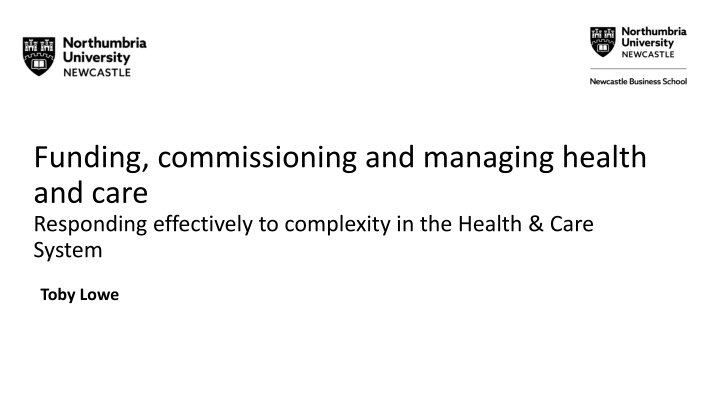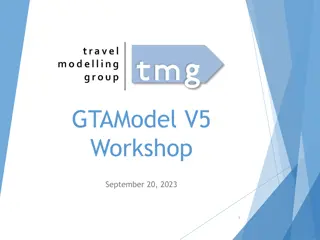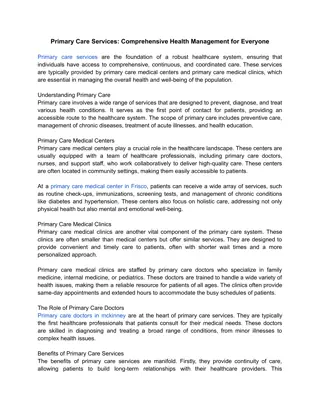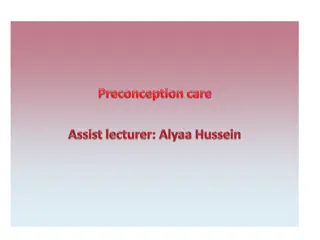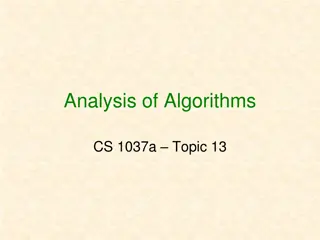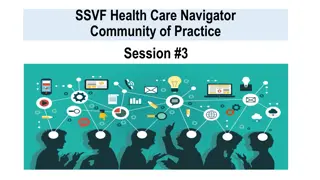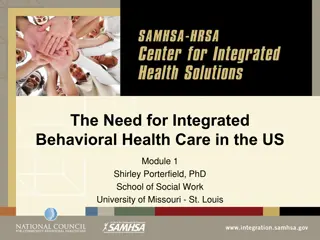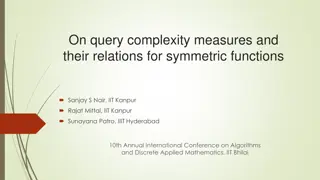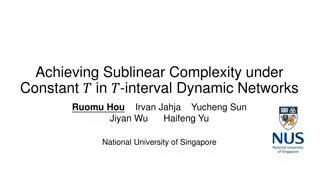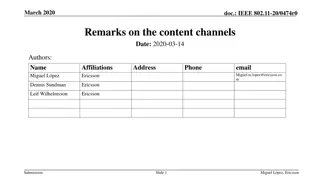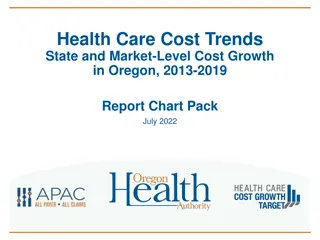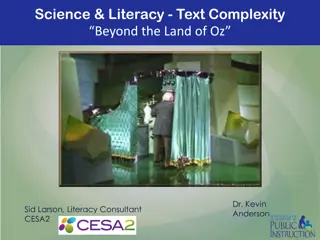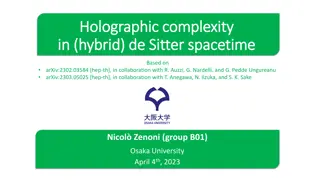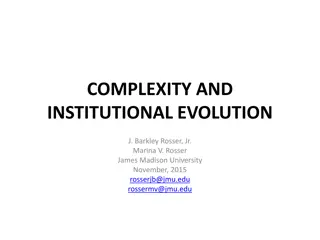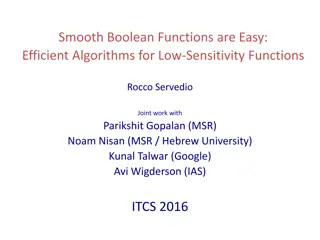Managing Complexity in Health & Care Systems
Addressing the challenges of complexity in health and care systems, this content delves into embracing complexity, working in complex environments, and understanding the emergent nature of complex systems. It highlights the importance of being human, continuous learning, and nurturing healthy systems to achieve positive outcomes.
Download Presentation

Please find below an Image/Link to download the presentation.
The content on the website is provided AS IS for your information and personal use only. It may not be sold, licensed, or shared on other websites without obtaining consent from the author.If you encounter any issues during the download, it is possible that the publisher has removed the file from their server.
You are allowed to download the files provided on this website for personal or commercial use, subject to the condition that they are used lawfully. All files are the property of their respective owners.
The content on the website is provided AS IS for your information and personal use only. It may not be sold, licensed, or shared on other websites without obtaining consent from the author.
E N D
Presentation Transcript
Funding, commissioning and managing health and care Responding effectively to complexity in the Health & Care System Toby Lowe
Summary Working in complexity Embracing complexity: Human, Learning, Systems Examples - Plymouth
What does it mean to work in complex environments?
Complexity People are complex Issues are complex Systems are complex = embrace complexity, because life is complex
Complexity Let s play a game .
Complex systems The results in complex systems are emergent Complex systems are not under our control The outcomes we desire are emergent properties of complex systems
Means no more of this. Robert Schalock & Gordon Bonham Measuring outcomes and managing for results , Evaluation and Program Planning, 2003
And this. We cannot hold people/organisations accountable for producing outcomes. Because outcomes are made by complex systems that are beyond their control.
Key ideas Funding, Commissioning and Managing in complexity involves: Being Human to one another: trust, empathy, asset-based Learning and adaptation: improvement requires continuous learning Systems: Nurture healthy systems in order to create positive outcomes
Human To be Human, put on your VEST: Respond to Variety of human need and experience Use Empathy to understand the life of others View people from a Strengths-based perspective Trust people with decision-making Means: Recognise intrinsic motivation of staff Devolved decision-making people in the work decide what to do liberating workers from attempts to proceduralise what happens in good human relationships, and instead focus on the capabilities and contexts which help enable these relationships
Human = Public service is Bespoke by Default Each human being is recognised as having their own strengths and needs. The job of the health & care system is to: Hear and understand those strengths and needs through forming relationships with people Respond appropriately to those strengths and needs
Learning Current view: Learning is a phase in social innovation Learn & experiment. Find what works Do more of that Young Foundation, Stages of Social Innovation
Learning In a complex environment, learning is a continuous process We need to continuously adapt to changing strengths and needs of people, and changes in the wider system. There is no such thing as what works because what works is always changing. What works is a continuous process of learning and adaption. = funders and commissioners are purchasing the capacity for organisations to learn and adapt.
Learning Using data to learn, not to demonstrate impact Campbell s Law: "The more any quantitative social indicator is used for social decision-making, the more subject it will be to corruption pressures and the more apt it will be to distort and corrupt the social processes it is intended to monitor. Measure only what s useful for learning Stories, as well as measurement Creating a learning culture: Positive error culture Removing competition
Systems Commissioners take responsibility for the health of the system What does a healthy system look like? Lankelly Chase System Behaviours?: Perspective People view themselves as part of an interconnected whole People are viewed as resourceful and bringing strengths People share a vision Power Power is shared, and equality of voice actively promoted Decision-making is devolved Accountability is mutual Participation Open, trusting relationships enable effective dialogue Leadership is collaborative and promoted at every level Feedback and collective learning drive adaptation
Systems Commissioners set the tone they are part of the system We're not in opposition. They're not our enemy. We all want the same thing. We're not [in] a purchaser/provider [relationship]. We're a collective . Let go of the illusion of control Sharing Power commissioners as enablers, not controllers How are you making sure that all voices are heard? And all voices count? System Stewards Whose job is it to look after the health of the system?
Plymouth case study The Council and CCG created an 80m, 10 year, shared budget to commission a health and care system for vulnerable adults in Plymouth This was tendered through an Alliance contract model whereby organisations in the city came together to create a shared response. The tender did not specify outputs or outcomes to be delivered. Instead, it focussed on collaboration and learning together.
Plymouth case study The tendering process = series of design conversations between the commissioners and providers in the Alliance Generated a set of core service principles and activities emerged.
Plymouth case study No outputs or outcomes in the tender or contract This commissioning process was made possible by four years of system change work, which built relationships of trust between the actors involved.
Plymouth case study https://campus.recap.ncl.ac.uk/Panopto/Pages/Viewer.aspx?id=df91ebad-4f28-4a8b-a24a-84b4137f90d3
Putting it into practice What issue would you like to look at? Elements of a commissioning process to address that issue: Starting with purpose Understanding the system Building relationships and trust Establishing shared purpose Developing principles, values and behaviours Design Resource allocation Experimentation Governance and learning Embedding and influencing
Toby.lowe@northumbria.ac.uk @tobyjlowe Twitter
